“We believe that athletes need specialized approaches to eating disorder identification, management, and prevention, but especially treatment.”
The world of sport is a microcosm of the world at large. As such, what occurs in the larger world will likely occur in the sport world as well. Unfortunately, this includes eating disorders. Despite the fact that athletes are often viewed as “healthy” and strong, as well as being able to do things that many non-athletes cannot do, many athletes have eating disorders. In fact, research suggests that athletes have more eating problems than their non-athlete counterparts.
Risk Factors for Athletes & Eating Disorders
Why are many athletes at increased risk for developing eating disorders? Athletes have the same risk factors for developing these disorders as non-athletes, (societal pressures, family history, perfectionism, etc.). In addition, athletes have physical and energy demands related to significant expenditure and training. They also have risk factors that are related to aspects of the sport environment or that may be unique to a particular sport.
Athletes with eating disorders will encounter a program designed specifically for them that is run by healthcare professionals who understand not only their special treatment needs, but also understand and appreciate the importance of sport in the life of a serious athlete.














